
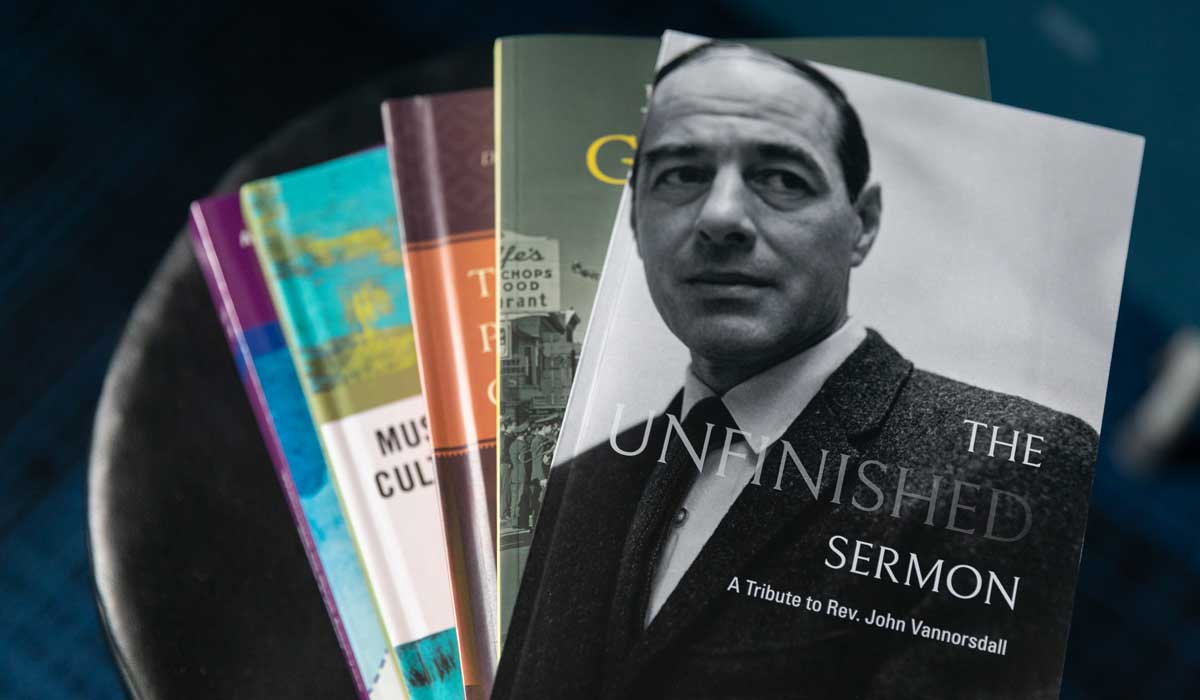
At Gettysburg College, our faculty and staff are endlessly curious and passionate about what they do. This deep-rooted commitment to academia not only exists in the classroom and through interactions with students, as they teach and mentor them to learn, grow, and pursue meaningful work of their own, but it’s something they wholeheartedly embrace. They live it.
When they’re not teaching and working on campus, many are pursuing these same passions—conducting research and exploring new projects within their areas of interest and expertise. Exemplifying this are eight Gettysburg faculty and staff members who released major works in 2021. These works, which include textbooks, historical nonfiction, albums, and podcast courses, extend across a variety of departments and disciplines—from local Gettysburg history to philosophy, religion, mathematics, music, culture, and public policy.
Read the roundup below.
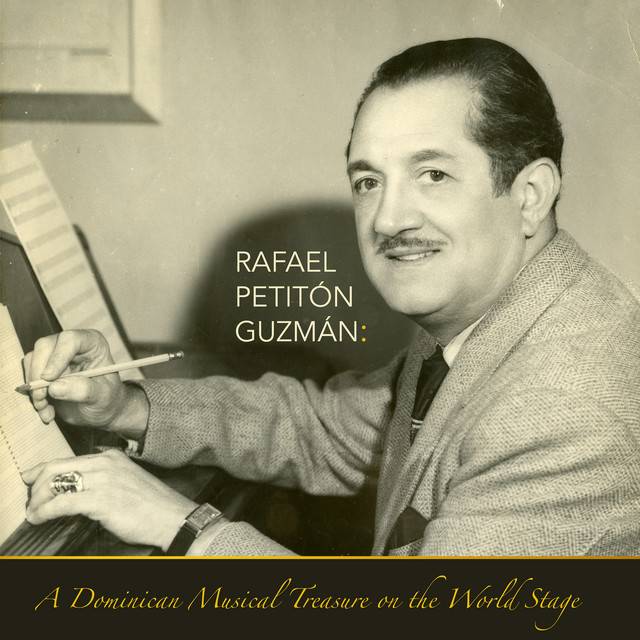
“Rafael Petitón Guzmán: A Dominican Musical Treasure on the World Stage”
Co-produced by Sunderman Conservatory of Music Prof. Paul Austerlitz
This scholarly album, which Austerlitz produced alongside John Bimbiras, revives the work of an under-documented but world-class musician from the Dominican Republic who was active internationally in the mid-20th century.
“At Gettysburg College, I have been privileged to fulfill creative projects developing my original musical ideas as an artist in tandem with rigorous research in music history and music cultures,” Austerlitz said. “This project, fittingly, aligns with both of these strands by presenting new reinterpretations of historical repertoires based on in-depth scholarly study of their history and social significance.”
Furthermore, Austerlitz said he hopes listeners to this music “enjoy its masterful synthesis of infectious Afro-Caribbean rhythms with techniques of Euro-classical music.”
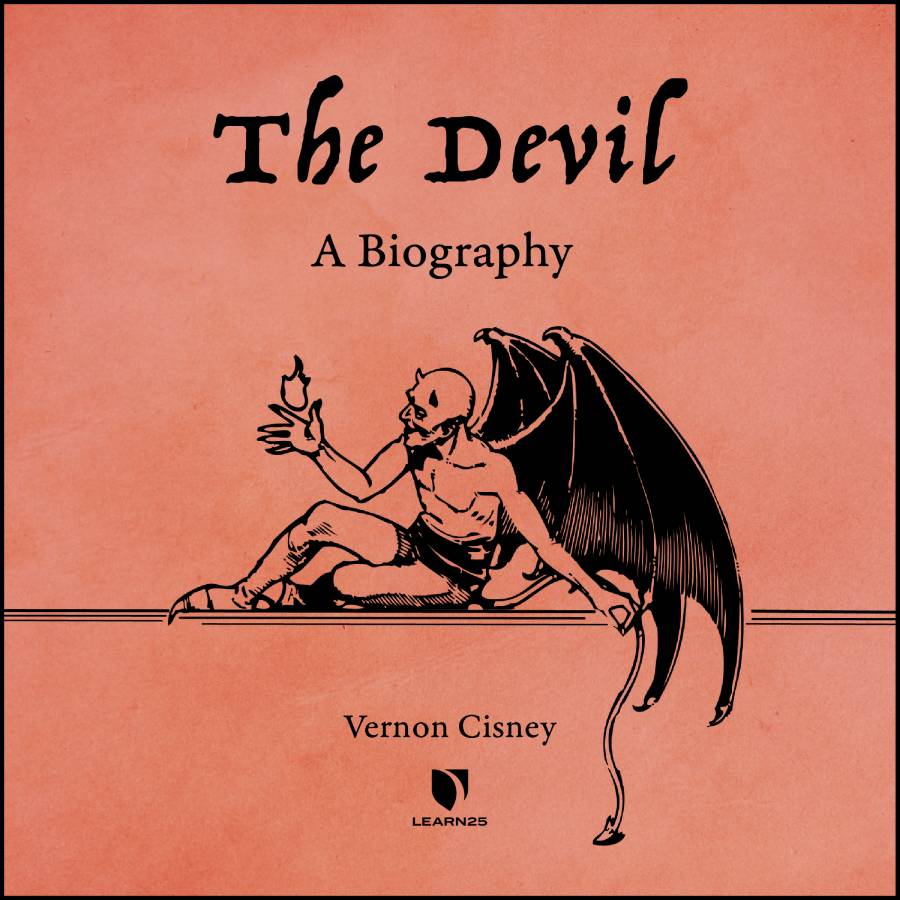
“The Devil: A Biography”
By Interdisciplinary Studies Prof. Vernon Cisney
In this 21-lecture audio series, Cisney engages an interdisciplinary lens to unveil and explore the mythos around the elusive figure of the Devil. By tracing this figure through 4,000 years of historical, religious, philosophical, literary, and cinematic portrayals, listeners will better understand the historical-political milieus out of which these depictions and their contextual myths have emerged. Listeners will also be challenged to interrogate their own views about the nature of God in light of the cosmic evil this figure represents.
Cisney, who has long been interested in the intersections of philosophy, religion, and the public sphere, hopes that listeners come to understand that the figure of the Devil is not any one thing.
“He is the cosmic adversarial character that human beings employ in order to explain whatever evil they perceive in the world around them. Thus, as human narratives change—with shifts in history, empires and nations, religious denominations, nature, health, politics, etc.—so too does the figure of the Devil,” Cisney said. “The course traces the evolution of this character from his origins in ancient Mesopotamian mythology, through the Bible, through the literary depictions of Dante [Alighieri], [John] Milton, and [Johann Wolfgang von] Goethe, and up into the recent Qanon conspiracy theories.”
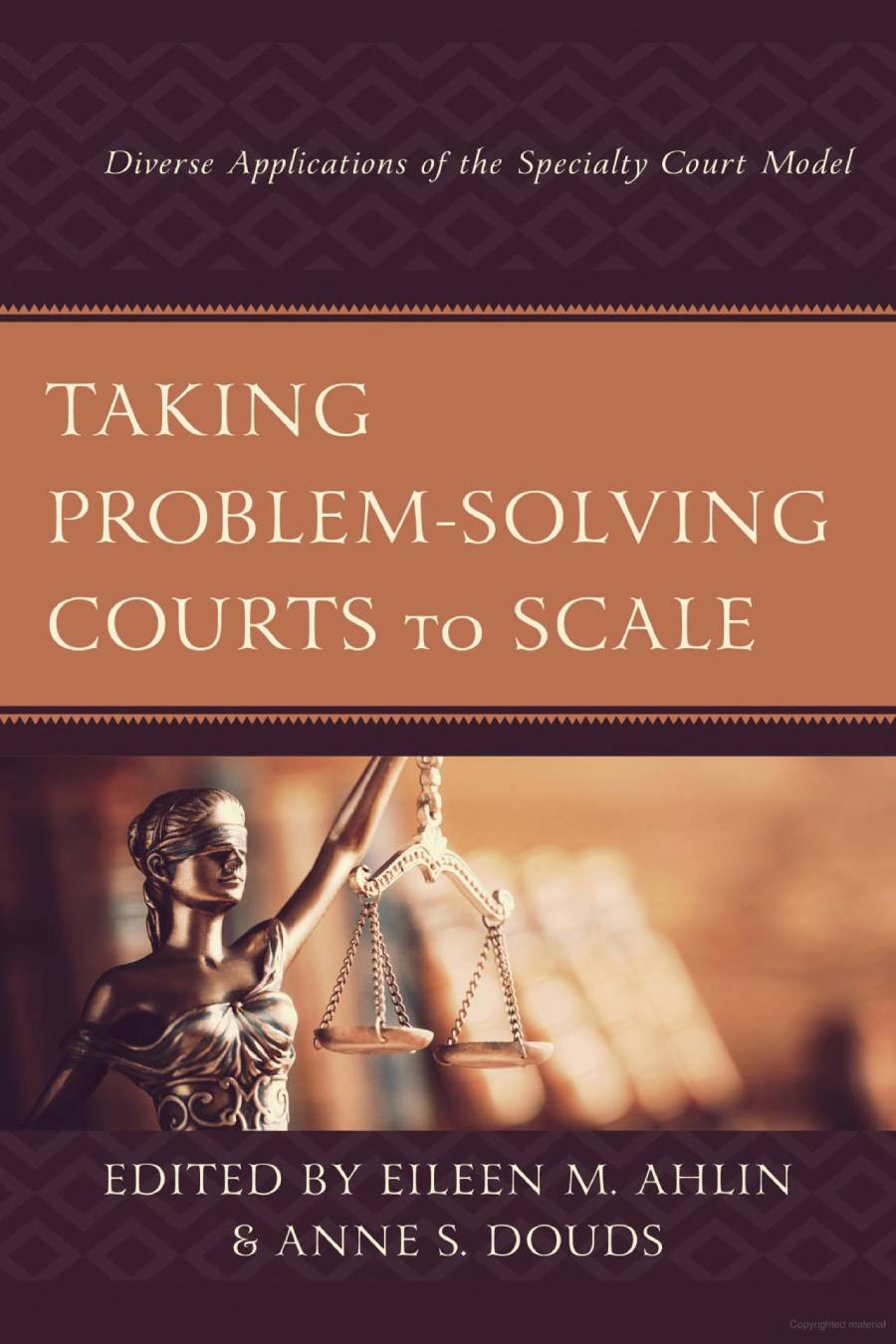
“Taking Problem-Solving Courts to Scale: Diverse Applications of the Specialty Court Model”
Co-edited by Public Policy Prof. and Chairperson Anne Douds
In the more than 30 years since the drug court model transformed the criminal justice landscape, problem-solving courts have expanded their reach beyond criminogenic needs. This book, which Douds edited alongside Eileen J. Ahlin, provides a comprehensive account to date of how problem-solving courts are continuing to revolutionize justice.
“This book is not a celebration of specialty courts so much as an invitation to analyze them. They are flawed, and many lack discernable theoretical foundations,” Douds said. “These courts can be valuable and effective, but there are serious concerns about some of them that we should continue to address.”
“Taking Problem-Solving Courts to Scale” is presented in three sections to address specialty courts focused on criminogenic needs, individual characteristics, and offense characteristics. At the outset of each section, the editors describe the courts’ purpose falling under these broad categories and highlight key elements from the chapters falling within.
Douds has been conducting program evaluations of specialty courts for more than a decade, often engaging students’ participation on evaluation teams, and using those evaluations as case studies in class discussions about a variety of social policies. Four Gettysburg College students even co-authored chapters of this book: Kyle Troeger ’22, Jared Michaels ’22, Ella Warburton ’23, and Kealy Cassidy ’20.
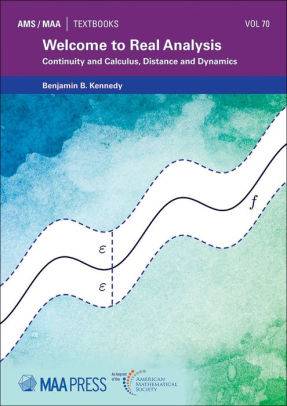
“Welcome to Real Analysis”
By Mathematics Prof. Benjamin Bartlett Kennedy
“Welcome to Real Analysis” is a textbook for a course in real analysis, which is a standard part of the advanced undergraduate math curriculum. The book helps students prove and thoroughly understand all the big ideas that are usually treated only on an intuitive level in first- and second-semester calculus. It also pushes those same big ideas, especially the notions of limit and continuity, farther into topics like difference equations, fractals, and chaos theory.
Kennedy taught Real Analysis at Gettysburg College several times, and he said it is one of the more challenging topics in the undergraduate math curriculum. “Welcome to Real Analysis” was developed over several years from Kennedy’s course notes.
“I worked hard to include not only the standard results that are in any real analysis book, like the fundamental theorems of calculus, but also fully rigorous yet accessible introductions to beautiful but more unusual topics like chaos theory,” Kennedy said. “The book also gave me the chance to organize and write down a lot of the advice I give my students on learning and doing higher-level mathematics.”
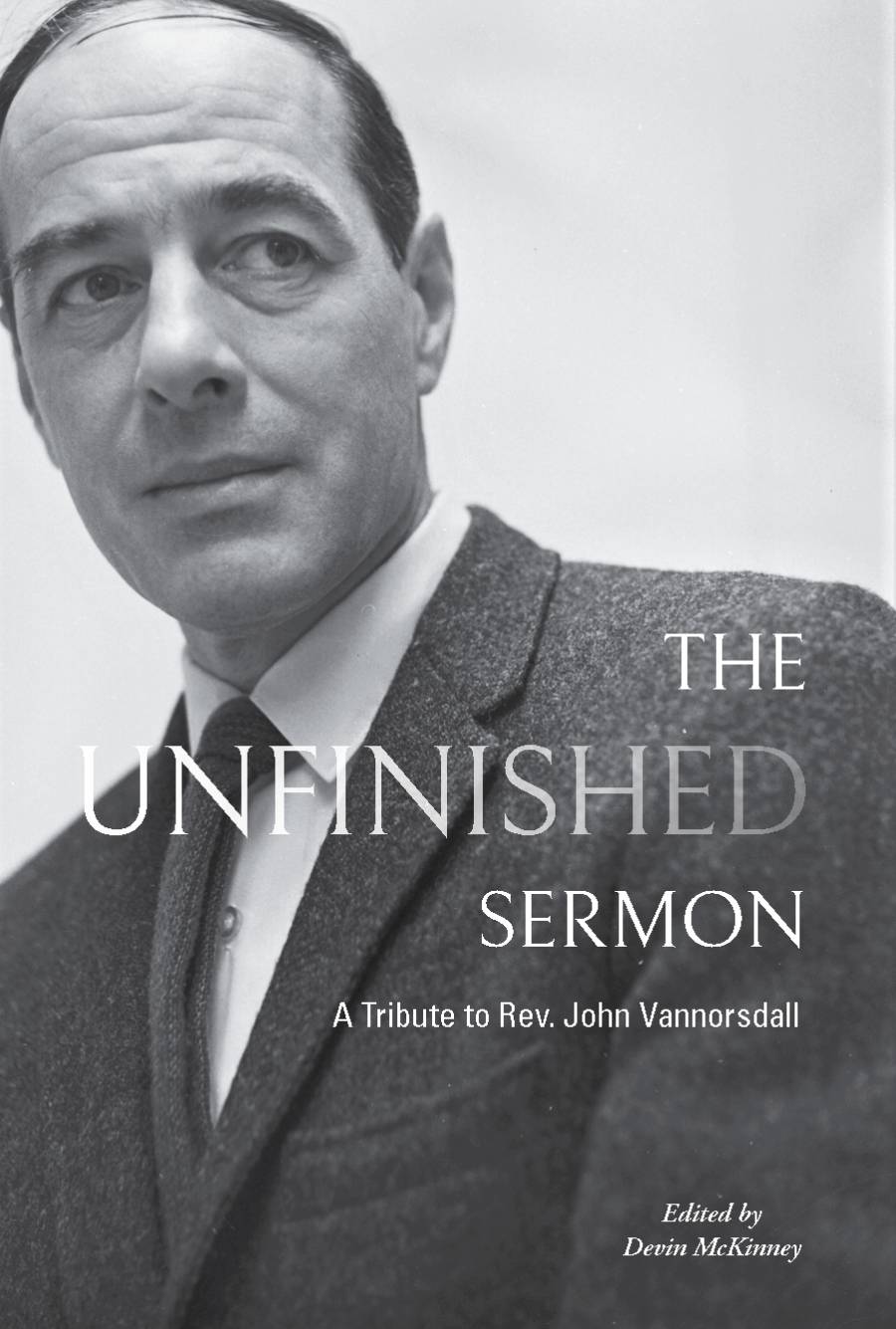
“The Unfinished Sermon: A Tribute to Rev. John Vannorsdall”
Edited by Musselman Library Archives Assistant Devin McKinney
This volume pays tribute to Rev. John W. Vannorsdall, Chaplain of Gettysburg College from 1962 to 1976, with excerpts from Vannorsdall’s sermons, essays, and memoranda, contemporary news stories, and reflections from students, colleagues, and family.
“I’ve always been fascinated by the social, cultural, and political movements of the post-World War II period, particularly the tumults of the 1960s and ’70s,” McKinney said. “With this book, I was able to use the College Archives to fill in more of Gettysburg’s part in that history, while paying deserved tribute to one of its most remarkable figures.”
McKinney hopes that readers come away with a sense of Vannorsdall’s bravery, eloquence, and complexity, and an understanding that Gettysburg College, while not a center of campus revolt, was undergoing changes and sponsoring debates around the same issues.
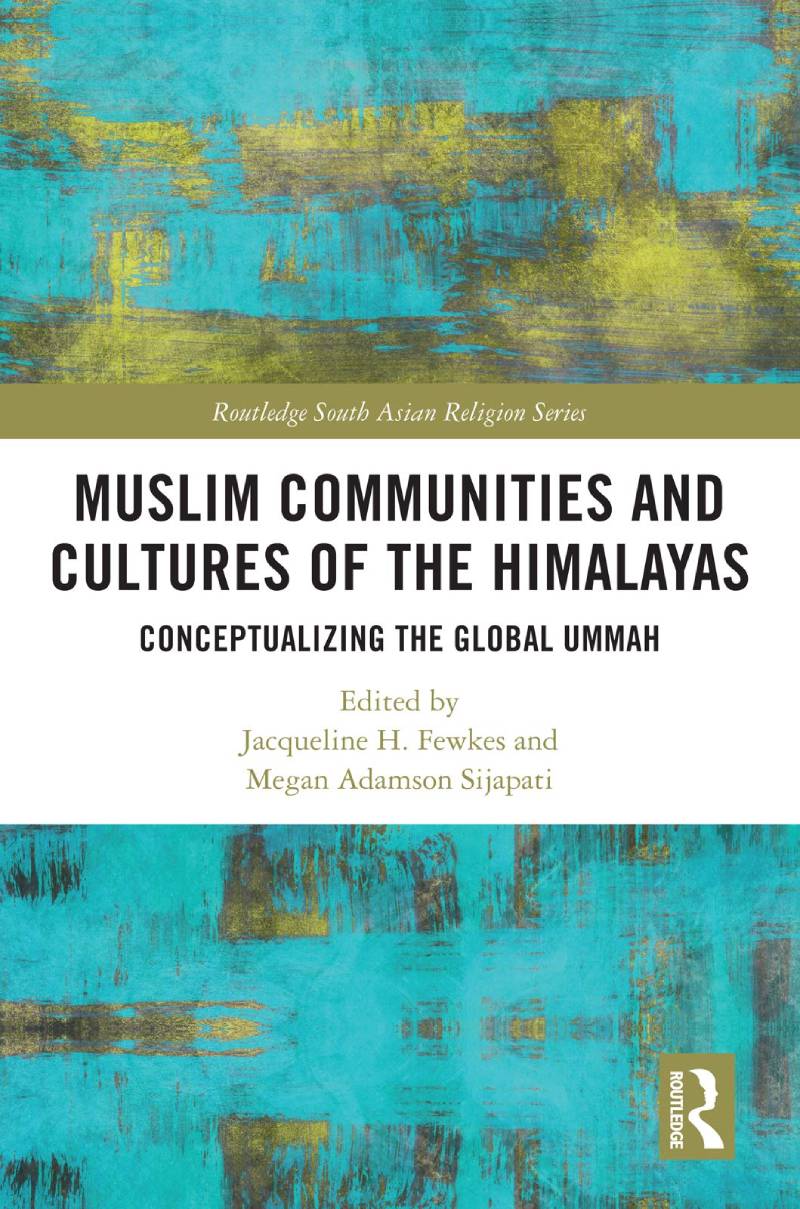
“Muslim Communities and Cultures of the Himalayas: Conceptualizing the Global Ummah”
Co-edited by Religious Studies Prof. Megan Adamson Sijapati
This book, which Sijapati edited with Jacqueline H. Fewkes, chronicles individual perspectives and iterations of the Muslim community, practice, and experience in the Himalayan region. It is the first book to bring together original scholarly accounts of the cultural, social, artistic, and political diversity of the Himalaya beyond the better understood and frequently documented religio-cultural expressions of the region. As such, it addresses central questions in the fields of anthropology, geography, history, religious studies, Asian studies, and Islamic studies.
Sijapati hopes that readers learn that Islam and Muslim societies and cultures are immensely diverse.
“The study of Islam and Muslim societies can be approached in interdisciplinary ways to yield new insights that ultimately can help scholars, activists, and policymakers develop better relationships with Muslim communities and support the rights and representation of people on the margins of pluralist nation-states,” Sijapati added.
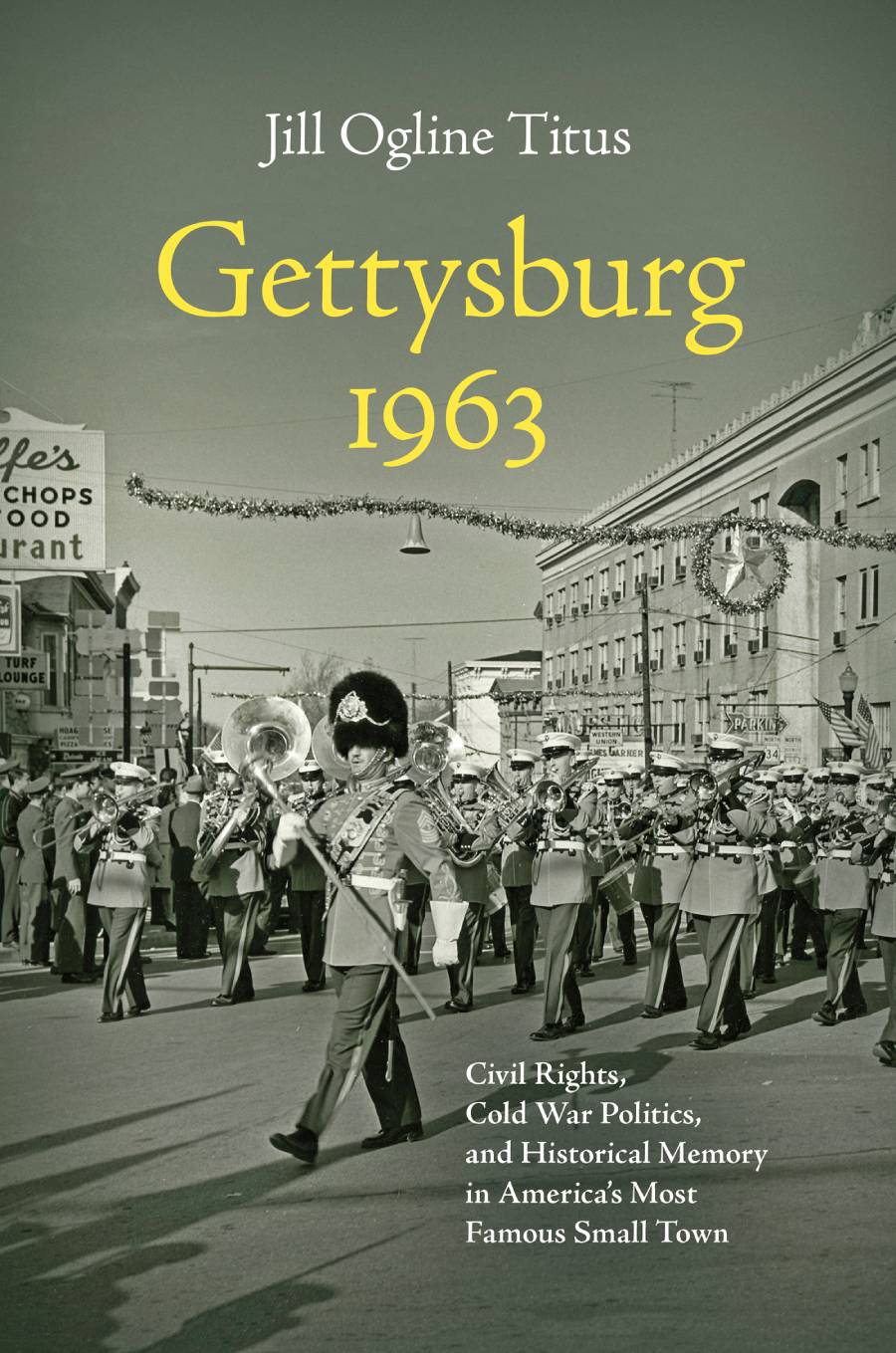
“Gettysburg 1963: Civil Rights, Cold War Politics, and Historical Memory in America’s Most Famous Small Town”
By Associate Director of the Civil War Institute Jill Ogline Titus
In “Gettysburg 1963,” Titus uses centennial events in Gettysburg to examine the history of political, social, and community change in 1960s America. Examining the experiences of political leaders, civil rights activists, preservation-minded Civil War enthusiasts, and local residents, Titus shows how the era’s deep divisions thrust Gettysburg into the national spotlight and ensured that white and Black Americans would define the meaning of the Battle of Gettysburg, the Gettysburg Address, and the Civil War in dramatically different ways.
“This book project allowed me to bring together my scholarly background in mid-20th century U.S. history with a focus on civil rights history, my academic training in historical memory and public history, and my work at the Civil War Institute,” Titus said. “In addition to hopefully contributing to the scholarly literature on Civil War memory, this investigation of shifting commemorative practices and the evolving landscape of the Gettysburg battlefield has created new opportunities for student exploration and public programming alike.”
Titus hopes that readers take away a better understanding of the extent to which commemoration of the centennial anniversary of the battle was shaped by the expanding struggle for Black freedom and the political realities of the Cold War.
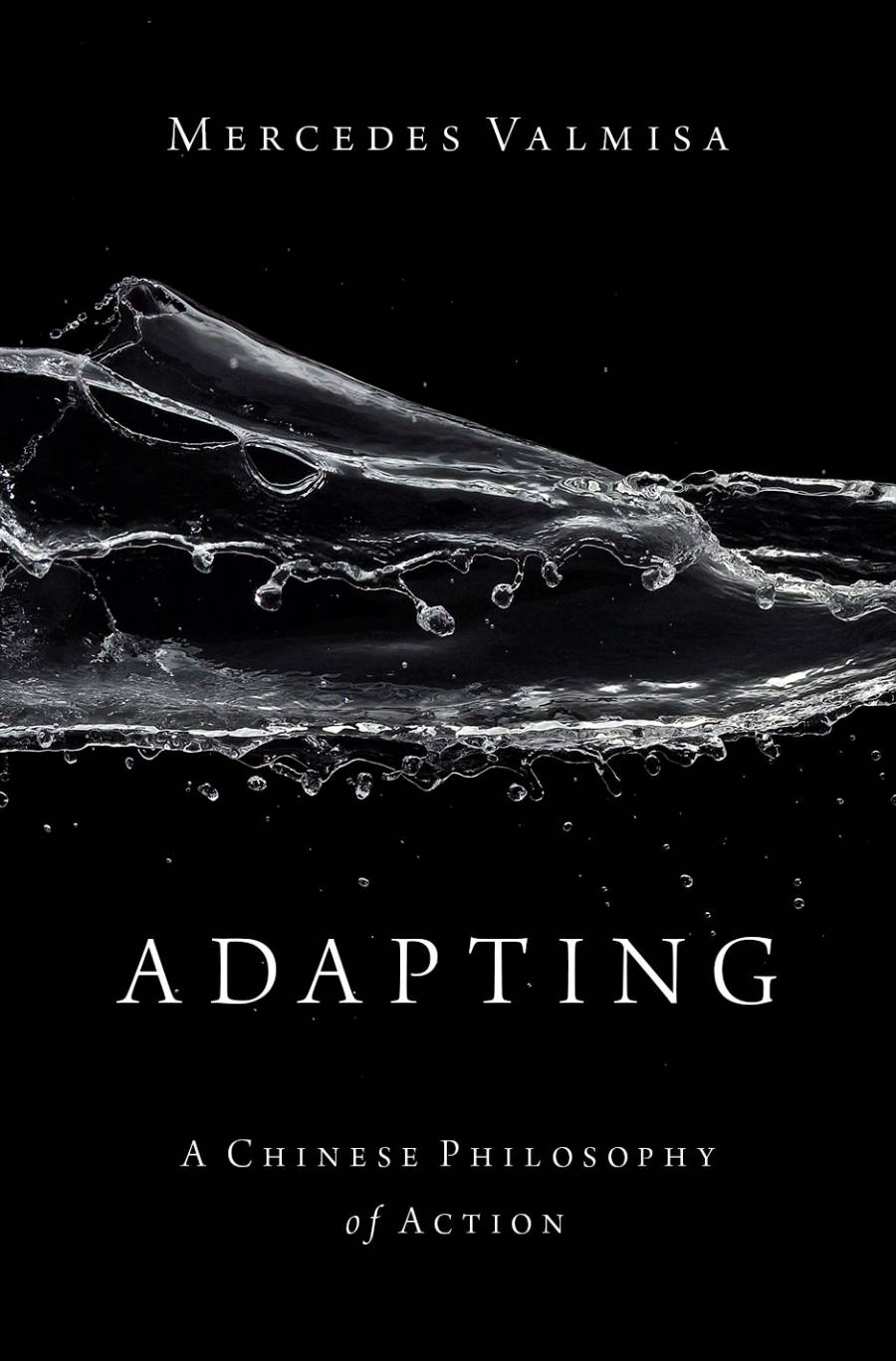
“Adapting: A Chinese Philosophy of Action”
By Philosophy Prof. Mercedes Valmisa
This book is the first monograph dedicated to the exploration and rigorous reconstruction of an extraordinary strategy for efficacious relational action devised by Classical Chinese philosophers to account for the interdependent and embedded character of human agency—what the author has denominated “adapting” or “adaptive agency.”
It explores the core conception of adapting both on autochthonous terms and by cross-cultural comparison, drawing on the European and Analytic philosophical traditions as well as on scholarship from other disciplines. Adapting is one of the world's oldest philosophies of action, and yet it’s shockingly new for contemporary audiences, who will find in it an unlikely source of inspiration to cope with our current global problems.
“I want readers to pay attention to the ways in which we act, individually and as a social collective, and reflect on whether our courses of action are effective to achieve our goals,” Valmisa said. “I want the reader to ask themselves: when I want to achieve something, how do I go about getting there? When I’m in an unexpected situation that requires some kind of resolution, how do I usually react? What guides my actions?”
Read more about Gettysburg College’s first-class faculty, and what makes them so special.
By Molly Foster
Photo by Shawna Sherrell
Posted: 06/21/22


